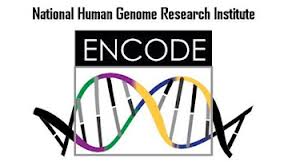 Close Topic Options
Close Topic OptionsHuman Genome Project - Dna - Encode Project
Human Genome Project Dna Encode Project - Sciences, Education, Art, Writing, UFO - Posted: 16th Jul, 2017 - 11:09am
Human Genome Project - Dna - Encode Project
Human Genome Project - DNA - Encode Project
The scientific community is rethinking its decade-old belief that most DNA is "Junk," after an international consortium that included a BYU professor and one of his undergraduate students found at least 80 percent plays a role with genes. Ref. Source 1

Human Genome Project - Dna - Encode Project (Hover)
Human Genome Project - Dna - Encode Project UFO & Writing Art Education Sciences
Mapping the 'dark matter' of human DNA
Although our knowledge of the human DNA is extensive, it is nowhere near complete. For instance, our knowledge of exactly which changes in our DNA are responsible for a certain disease is often insufficient. This is related to the fact that no two people have exactly the same DNA. Even the DNA molecules of identical twins have differences, which occur during their development and ageing. Some differences ensure that not everybody looks exactly alike, while others determine our susceptibility to particular diseases. Knowledge about the DNA variants can therefore tell us a lot about potential health risks and is a first step towards personalized medicine. Many small variants in the human genome -- the whole of genetic information in the cell -- have already been documented. Although it is known that larger structural variants play an important role in many hereditary diseases, these variants are also more difficult to detect and are, therefore, much less investigated. Ref. Source 3u.
Human Genome Project - Dna - Encode Project
New limits to functional portion of human genome reported. New calculations by an evolutionary biologist suggest that no more than 25 percent of the human genome is functional. That is in stark contrast to suggestions by scientists with the ENCODE project that as much as 80 percent of the genome is functional. Source 7z.
 TOPIC: Human Genome Project - Dna - Encode Project
TOPIC: Human Genome Project - Dna - Encode Project